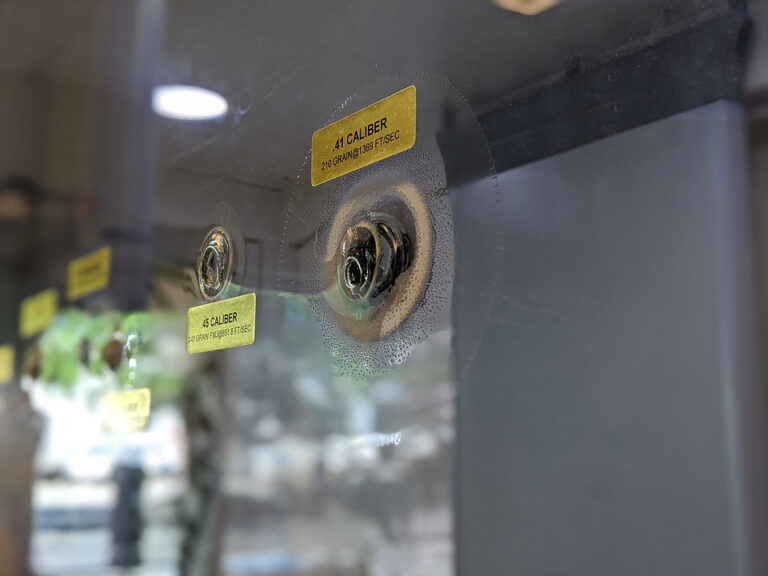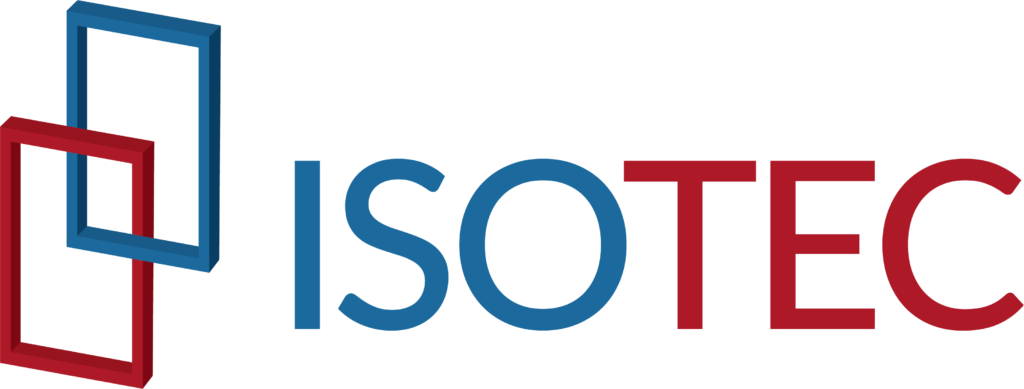Physical security is often overlooked until it is too late. Thus, the first priority when securing any location is prevention through various assessments. What kind of threats pose a risk to this building? Who or what needs to be kept out?
What is Bullet Resistant Glass?
There are 10 levels of UL Glass. The most common defensive glass is known as Riot or Anti-Attack Glass, which is able to withstand repeated blows from a baseball bat or brick, while also offering light blast resistance. Geographical areas that are often hit with natural disasters like earthquakes, hurricanes, and other violent storms are suggested to invest in anti-attack glass to prevent continual replacement.

Since there are several types of riot glass, it is important to understand the needs of a specific location to select the correct type and provide proper protection. Overall, anti-attack glass is ideal for a majority of structures and falls just below the first UL level in terms of impact resistance.
The UL Rating System is a series of tests established by the Underwriter’s Laboratory (UL), a not-for-profit organization focused on enhancing public safety by creating a set of high-quality standards for everyone. UL developed the most widely accepted set of quality standards for bulletproof glass and is one of the few Nationally Recognized Testing Laboratories authorized to perform safety testing by the Occupational Safety and Health Administration (OSHA).
Bullet Resistant glass is also
defined differently by individual companies. Isotec uses the UL Rating scale to create glass systems, ensuring
clarity and safety for everyone. Make sure to ask your provider what level of
protection they guarantee. Isotec’s bullet-resistant doors may
be fully customized to fulfill each site’s particular needs, including style,
automation, and protection.
Applications for Bullet Resistant Glass
Some locations require a tougher exterior and a higher level of security. For sites that accommodate sensitive information, goods, or personnel, and are more likely to be directly targeted, UL Levels 1-3 are recommended. Most companies and institutions cap at level 3 glass and anything above level 4 is exceptionally rare. Isotec has installed hundreds of glass panels, including level 8, an uncommon achievement. To break it down, the different kinds of bullet resistant glass are ideal for:
- Riot glass– all industries could benefit from the additional security of riot glass. It is not that much more expensive and can be an automatic deterrent for potential attacks. Additionally, it is less likely to be broken on accident and need replacement.
- Level 1– First-level ballistic protection can protect against several shots from a 9mm firearm. This is a recommended standard for businesses with assets that make them a target. Level 1 BR glass is popular for banks, credit unions, jewelry stores, and other high-value resource sites. Be sure to check with glass providers what level 1 means to them, since not every company’s level 1 is equivalent to UL level 1.
- Level 2– Becoming more popular among financial institutions in recent years, level 2 can handle shots from a .375 Magnum. Level 2 BR glass is most commonly seen in courthouses and municipalities, but the government go-to is considered excessive for most consumer businesses.
- Level 3– At 2″ thick, Isotec’s top standard material is thicker than the previous options and is designed to protect against up to 3 shots from a .44 Magnum firearm. Level 3 BR glass is requested almost strictly by federal security sites, and it is rare that a front-facing business would require BR glass of this strength.
- Levels 4-10– Although very seldomly required, Isotec has successfully installed up to level 8 BR glass and has the experience to work with these options. Levels 4 through 10 BR glass can resist shots from various automatic and assault rifles.”
